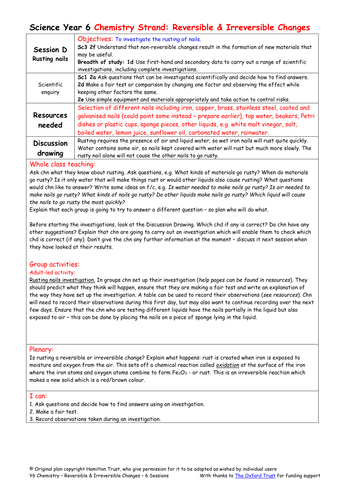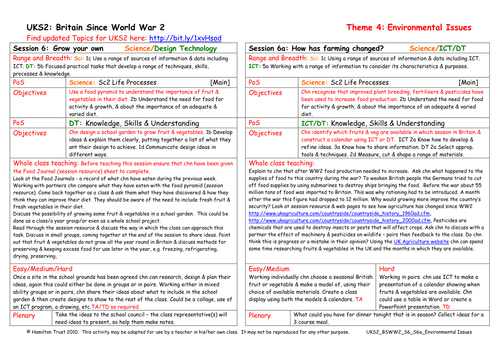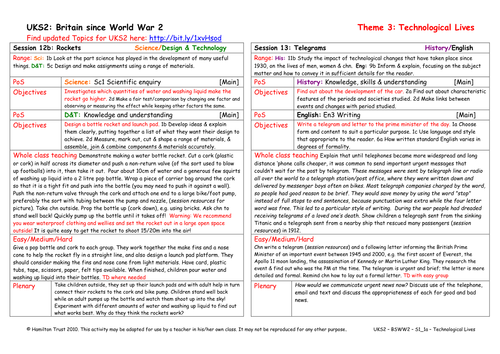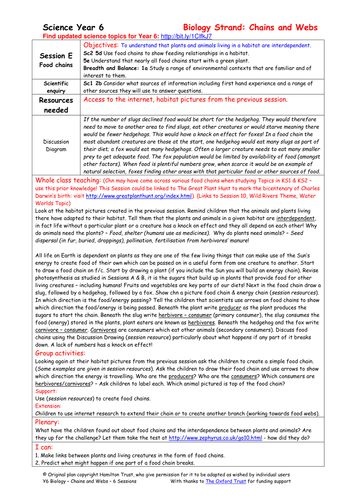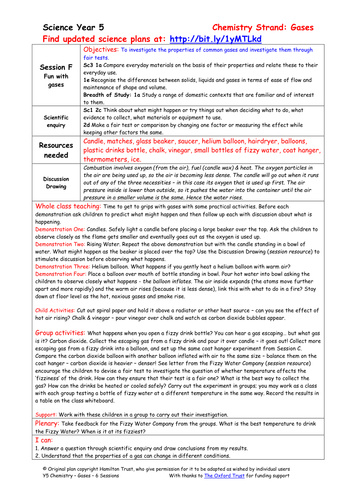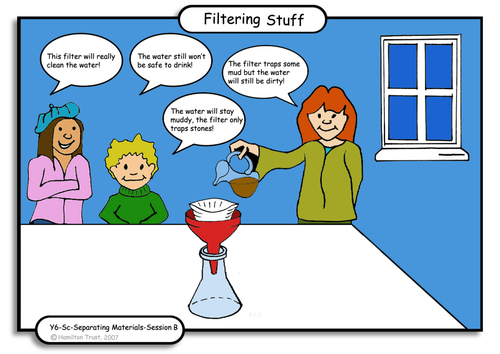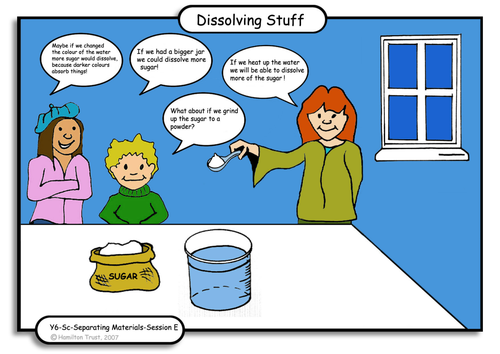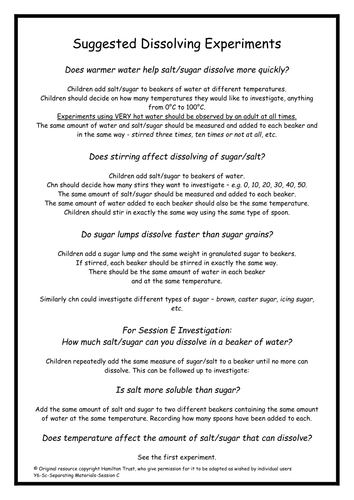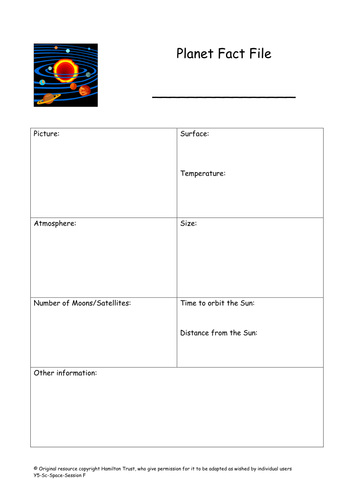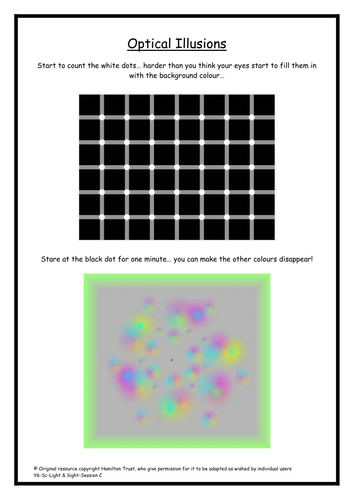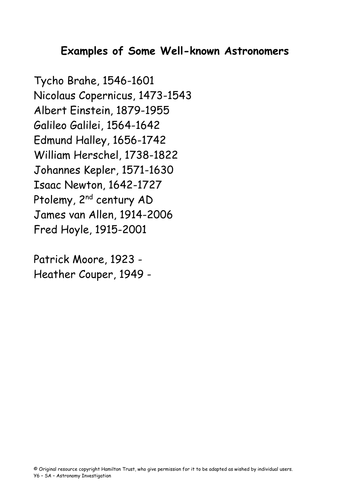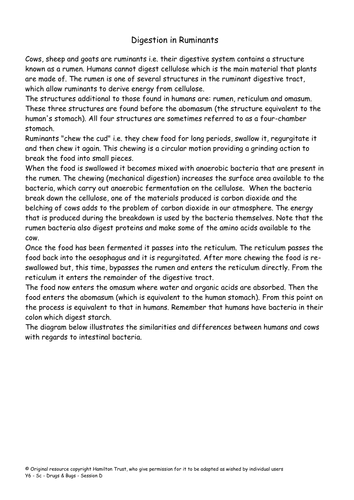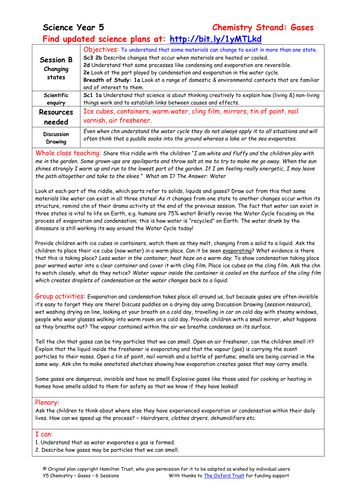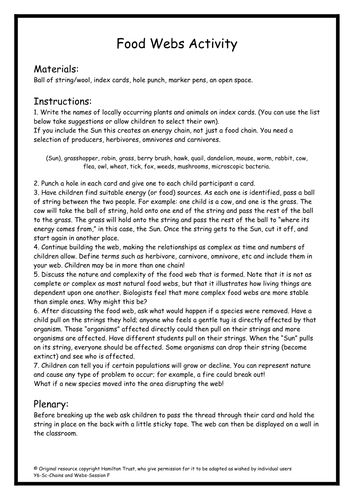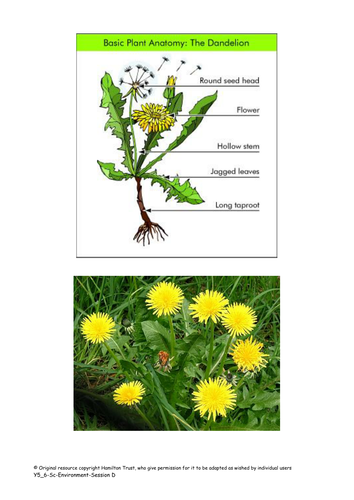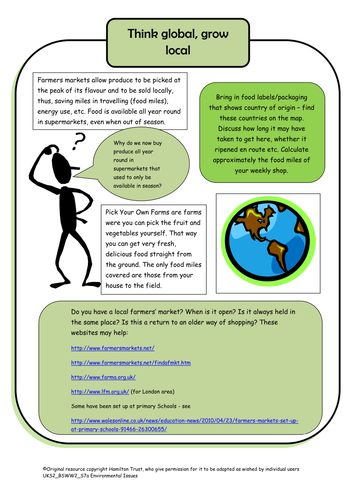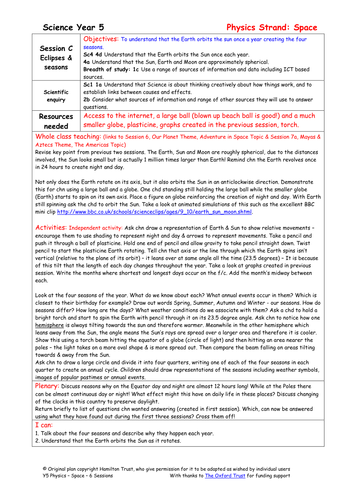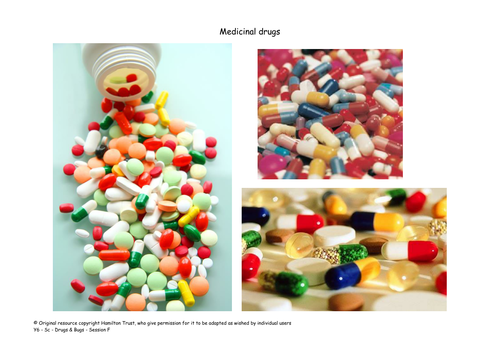
397Uploads
10040k+Views
11644k+Downloads
Primary science

Rusting nails
Look at an irreversible change. Children set up an investigation to answer questions about nails rusting. Will they compare nails made from different materials or find out whether or not both water and air are needed for rusting to occur?
Suitable for Y6 pupils.

Grow Your Own
Children compare a food journal they have kept with a food pyramid which gives the recommended servings of different food groups. The need to include fruit and vegetables is highlighted and children design a garden to grow their own.

Rockets
Demonstrate a water rocket to children, they then make their own, adding fins, nose cone and design a launch pad.

Food chains
All plants and animals living in a habitat are interdependent. In this session the children investigate a number of feeding relationships and create food chains to show the transfer of energy from the producers through the consumers.
Suitable for Y6 pupils.

Fun with gases
Candles burn, water fizzes, paper swirls spin and chalk gets dropped in vinegar in this practical session. Children then answer the call of the Fizzy Water company to find out if their water is fizzier ice cold! Suitable for Y5 pupils.

Filtering
Things become clearer in this session as children find out that some materials are insoluble creating mixtures when added to water. Children create their own filters to purify water but will it be safe to drink?
Suitable for Y6 pupils.

Investigate dissolving
It’s one lump or two… or even, maybe three or four in this session! Do all soluble materials dissolve in the same way? How much material can you dissolve in water? How can we increase how much material dissolves? Time to find out.
Suitable for Y6 pupils.

Solutions
This session will create quite a stir as the children investigate the factors which affect how some materials dissolve in water. They raise their own questions, devise fair tests and create line graphs to find answers.
Suitable for Y6 pupils.

Planets
In this session children blast off to the far flung corners of the galaxy to find out more about the planets that make up our solar system. They collect data in the form of a fact file used to report back to the rest of the class.
Suitable for Year 5 pupils.

Eyes
Children get an insight into sight in this session. They find out that to see things, light needs to enter the eye, and how their eyes function. They also find out how to care for their eyes and that sometimes eyes can even play tricks on us!
Suitable for Y6 pupils.

Stars and Moon
Find out about stars and how they are grouped into constellations, despite being a long way from each other. Make a simple telescope to study the stars and a planisphere to identify them. Study the phases and apparent movement of the moon.
Suitable for Y6 pupils.

Animals including Humans - Healthy Animals - Year 2
Hatch eggs and study the life cycle of chickens. Build understanding that exercise makes the heart work harder and that it is an essential part of a healthy lifestyle. Find out about healthy lunch box foods before designing and sharing your own snack.
Includes 6 session plans & resources
01 - Hatching eggs!
02 - Babies!
03- Stranded!
04 - Healthy hearts!
05 - Deep inside my lunch box!
06 - Pack a healthy picnic!
Hamilton’s science scheme provides children with a broad but comprehensive experience of primary science that systematically covers all of the National Curriculum for England objectives. Each year group is split into 6 blocks of 6 sessions, each of which can be completed within a half-term. We present them in a recommended teaching order, but you may adapt this to fit your requirements. Working scientifically, investigations and meaningful outcomes are fully incorporated in each block.

Useful micro-organisms
Discuss bacteria living in and on humans and compare our digestive system with that of ruminants. Find out how bacteria help us to recycle waste and make river water safe for us to drink. Visit the Microbe Zoo! Ask 'What does our skin do?' 'Is there life on Mars?'
Suitable for Y6 pupils.

Changing states
Water doesn’t just dry up… it changes state! In this session children investigate how water can exist in all three states and look for evidence of water as vapour, drawing diagrams to explain what is happening. Suitable for Year 5 pupils.

Puberty
Session 1 - Look at the physical changes that take place during puberty. Some are seen easily, e.g. growing taller and broader, hair around genitals and under arms, etc. Also discuss menstruation and wet dreams and rites of passage in different cultures on reaching puberty.
Session 2 - Look at the emotional changes in puberty. Use drama to act out typical scenarios involving parents and teenagers; look at the different viewpoints and discuss how compromise can ease situations. Look at the meaning of friendships and where help can be found.
Suitable for Y6 pupils.

Food webs
A wonderful food web is weaved in this session as children create more complex feeding relationships. Through practical activity they discover the impact that subtle changes can have on the whole web!
Suitable for Y6 pupils.

Dandelions
Discussing dandelions! Children raise a question about the dandelions growing in the school grounds before planning and carrying out their investigation. Careful observation and measuring in groups are essential before they draw conclusions. Suitable for Y5/6 pupils.

Think Global, Grow Local
Discuss Farmers Markets and Pick Your Own food taking into consideration food miles, energy use, carbon footprint and produce. Calculate food miles involved in weekly shop (using labels and packaging from supermarkets). Children write an acrostic.

Eclipses and seasons
The Sun is a million times larger than Earth so how can its rays sometimes be obscured by the much smaller Moon? Children discover how eclipses are created and how the Earth’s tilt on its axis creates seasons.
Suitable for Year 5 pupils.

Other drugs
Discuss the use of the word drug for medicinal purposes as well as addictive substances. Children draw posters warning about the dangers of drugs in the home and draw conclusions about the various ongoing investigations about micro-organisms.
Suitable for Y6 pupils.

